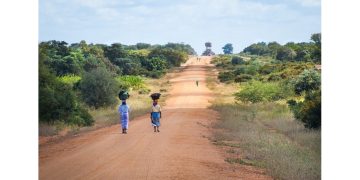Research using gene editing technology is being undertaken on the continent largely by African scientists to provide solutions for Africa, according to a panel of scientists and regulatory experts.
Their work is drawing upon the efficiency and precision of gene editing to restore staples that African farmers prefer, like banana and sorghum, they said. The goal is to support food security and better incomes for farmers, especially in the face of climate change challenges.
The panel of scientists included Dr. Leena Tripathi, director of Eastern Africa for the International Institute for Tropical Agriculture; Prof. Steven Runo, associate professor at Kenyatta University in Nairobi, and Josphat Muchiri, deputy director technical services at Kenya National Biosafety Authority (NBA). They made their observations in a recent Alliance For Science Live webinar, in which they noted that gene editing can improve Kenya’s food security.
“Gene editing is valuable in addressing problems associated with plant diseases and climate resiliency in Africa,” Tripathi said. “We are using this tool to develop disease-resistant banana varieties, focusing on banana bacterial wilt, fusarium wilt and banana streak virus. Banana is an a very important staple food crop in East Africa, and in many countries like Uganda banana consumption is much more than any cereal crop. However, the crop faces numerous production constraints particularly many pathogens and pests, which often co-exist, worsening the problem of crop loss.’
Unfortunately, traditional plant breeding technologies have not been effective in solving these challenges because the process takes a long time. But with gene editing, scientists can make small, targeted changes in the banana genome to make it resistant to diseases — without altering the appearance or taste.
Growing disease-resistant banana varieties would mitigate the negative impacts of plant diseases and pests on banana production, improving farmers’ income and enhancing food security, she noted.
Runo, a botanist fascinated with plants, initially had no idea he would be conducting gene editing research or working on sorghum. However, his passion for solving Kenya’s agricultural problems led him to obtain his PhD in plant genetics and molecular biology. He eventually moved into applying gene editing to combat the striga weed in sorghum. Striga, also known as witchweed, is a notorious weed that threatens several cereal crops including maize, sorghum and rice.
Striga is present in most parts of sub-saharan Africa (SSA) and can cause almost 100 percent yield loss. Crops worth some US$7 billion are lost to striga globally every year. Traditional control measures, such as crop rotation, intercropping and hand weeding, are ineffective over time. Runo’s collaborative research focuses on conferring resistance to this parasitic weed by editing the low germination stimulant 1 (LGS1) gene in sorghum. This will potentially increase yield and nutrition for millions of people in Africa, he said.
When asked about the cost of the gene-edited banana and sorghum products to farmers, the scientists affirmed that the improved products will be sold at the same price as conventional crops.
Muchiri, speaking on the regulatory status of gene-edited products, assured participants that these products are safe for human and the environment.
“As the National Biosafety Authority, we have set up a regulatory framework to monitor this technology as it advances,” he explained. “The Kenyan regulatory framework is transparent and offers the researchers an opportunity to engage with NBA, the early consultation process, where we determine whether the technology will be regulated or not based on presence of foreign DNA.”
“We are confident in the future of the technology and the opportunities it presents for increasing income for farmers and feeding millions of people,” Muchiri said.
This webinar was moderated by Doris Wangari, a biotechnology regulatory expert in Kenya.
By Modesta Abugu and Doris Wangari
O artigo foi publicado originalmente em Cornell Alliance for Science.




















































